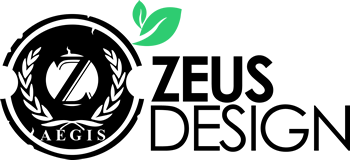Countless websites now use WordPress as a web development asset and content management system (CMS). What this means is, WordPress has the ability to create and manage entire websites, from the code to the copy. Plus, the simplicity of WordPress’s backend interface makes it appropriate for anyone. Whether you’re a blogger or a developer or a designer, WordPress proves itself a vital framework for any website. And here’s why:
Self-Hosted
For bloggers switching over to WordPress, you have to buy a monthly hosting package. Don’t panic – there are plenty of affordable options out there (we even offer web hosting packages). Plus, having your own host puts the site more in your control, and believe me, WordPress gives you a lot of control.
Design Possibilities
Let’s say you want a fancy web design interface, but don’t have any technical skills, what are you supposed to do? Well, you can find free WordPress design templates all over the Internet, though many are outdated or clunky, or you can hire a professional designer to whip one up for your WordPress site. Of course, if you are a designer, WordPress is great about integrating code into design so as to not ruin anything. I mean, there’s a reason 22% of new websites use it.
So Many Plug-ins
At the time of writing, there are 23,013 plug-in options in the WordPress plug-in directory. That’s 23,013 options for altering and customizing your website to meet your exact expectations. What exactly are those options? Pretty much anything you can imagine. There are some SEO plug-ins, some anti-spam plug-ins, and even some copywriting plug-ins. Honestly, it’s better to just spend time delving through the directory, starting with most popular options. And before I forget: they’re all free. All of them. Have fun!
Better SEO
Optimizing a WordPress website for a search engine is exponentially easier than doing it without WordPress. In addition to the search engine optimization plug-ins mentioned previously, WordPress’ framework makes it inherently easier to keep a website within a search engine’s limitations. For example, updating a page’s URL takes mere seconds, and it’s so easy that anyone can do it. Does this mean you’ll be a first-page result simply for using WordPress? No, sorry, it’s not that powerful, but it’s still more effective than trying to optimize a site without WordPress.
Easy-to-use CMS
Managing pages and URL structures used to be a nightmare, but WordPress’ backend CMS makes it easy to change, edit, delete, and move pages. This easy usability carries over into all other facets of the site, too, such as photos and content. Anything you want to edit or change, WordPress makes it easy and intuitive.
Code Control
In addition to being effective at managing content and internal pages, WordPress is also very effective at managing some of the site’s code. It’s not as extensive as, say, Dreamweaver, but it’s effective enough for many developers to create some outstanding on-site effects. Feel free to check our portfolio for examples.
Spam Management
Nearly every site is susceptible to spam in some way, but WordPress offers numerous options for cutting off the channels in which spam enters a site. For example, with one click you can turn off comment sections all across the site. Alternatively, you can turn off comment sections on a single page. If you want comment sections but don’t want spam, there are plenty of plug-ins that address this exact problem. (Seriously, plug-ins are amazing.) WordPress is all about putting the control in your hands.
Open Source
Ah, yes, the most important reason: WordPress is open source, which means it’s free. No fine print that screws you over months down the line. No secret monthly subscription service that kicks in only after six months. None of those scummy ways some companies make money. WordPress is absolutely free.
Reliable Support Forums
Lastly, as an open source piece of software, WordPress has an extensive support system. Head over to the official WordPress forums to see what I’m talking about. People are constantly finding new ways to make the software more effective, while fixing errors or glitches in the process.


